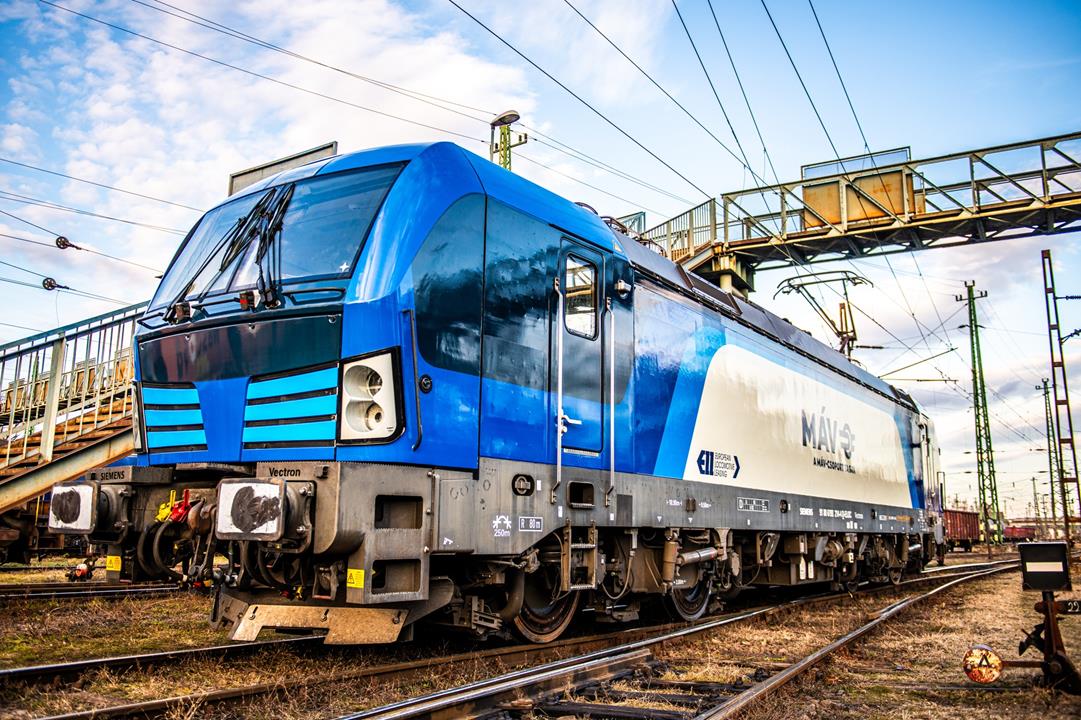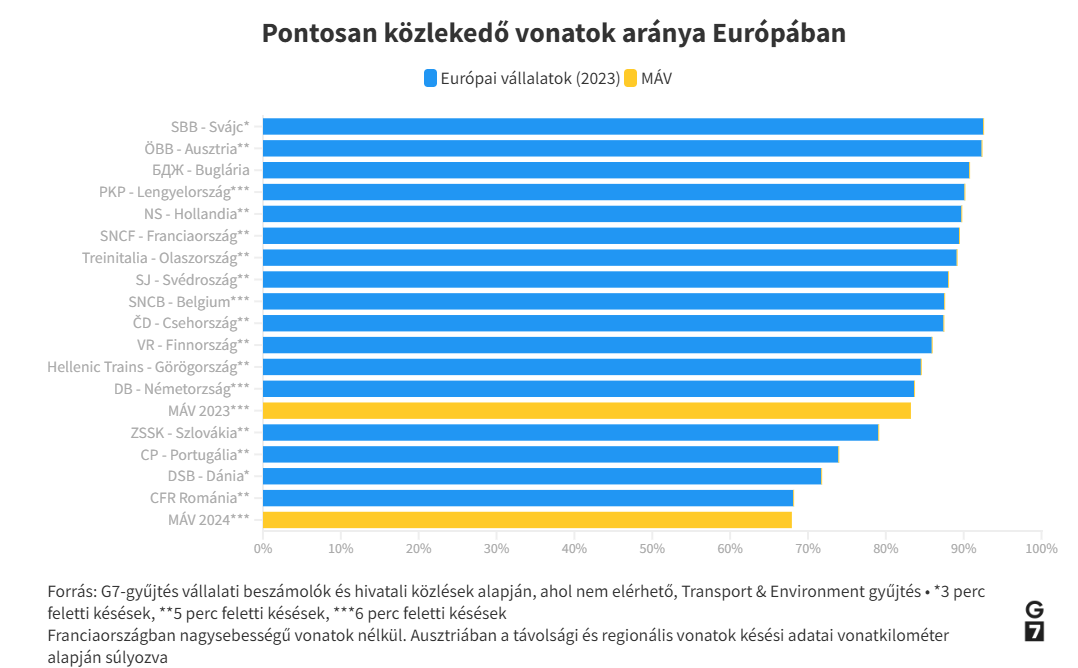Lagging behind in Europe: Every third Hungarian train ran late in 2024, data shows

Despite bold promises from Hungary’s transport minister, János Lázár, railway punctuality continues to deteriorate. Last year, nearly one in three trains operated by MÁV (Hungarian State Railways) arrived late — a significant drop from 2019, when only one in ten was delayed. By the final quarter of 2024, almost two-thirds of all trains missed their scheduled arrival times.
Delays now harder to track at MÁV
While MÁV has announced new compensation rules — including partial refunds for delays over 20 minutes and discounts for monthly pass holders with multiple delays — many see these as reactive measures rather than systemic improvements.
According to G7, critics argue that MÁV has changed how it reports delays, making them harder to track. Last September, the company stopped publishing transparent statistics and introduced a more opaque reporting method. Meanwhile, Hungary’s Central Statistical Office refused to release delay data, citing data protection concerns.
More delays instead of long delays, old trains
According to internal figures, MÁV vehicles accumulated 3.7 million minutes of delays in 2024 — more than double the 1.9 million minutes logged in 2019. While the number of delayed trains increased, the average delay time has decreased slightly, suggesting a shift in strategy to avoid triggering compensation for long delays.
These reliability issues reflect deeper structural problems. MÁV’s train fleet is among the oldest in Europe, with an average age of 45 years, which is older than even the Romanian and Bulgarian fleets. While those countries have hundreds of new trains on the way, Hungary has yet to issue tenders, relying instead on renting or buying used vehicles. Infrastructure investment is similarly lacking, contributing further to chronic delays.
International comparisons show Hungary’s lagging performance. In a ranking of 17 European rail networks using standard delay data, MÁV’s 2023 performance was near the bottom, ahead of only Slovakia, Romania, Denmark and Portugal. By 2024, it may be the worst performer.

Still, MÁV leadership paints a more optimistic picture. CEO Zsolt Hegyi recently boasted that seven out of ten trains arrive on time — a statistic many find misleading given the shifting definitions of “on time”.
Read more news about MÁV HERE.
Read also:







